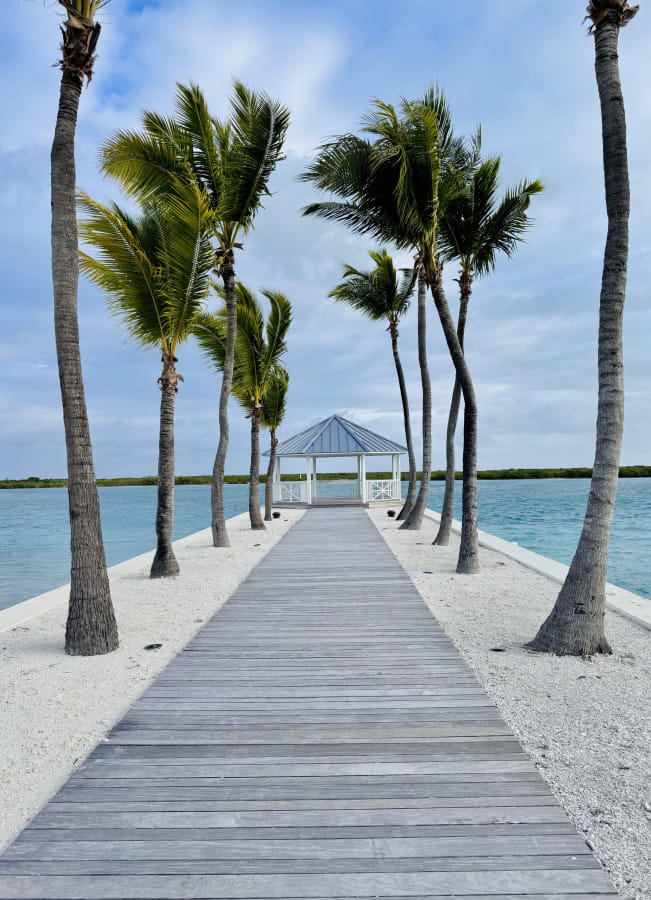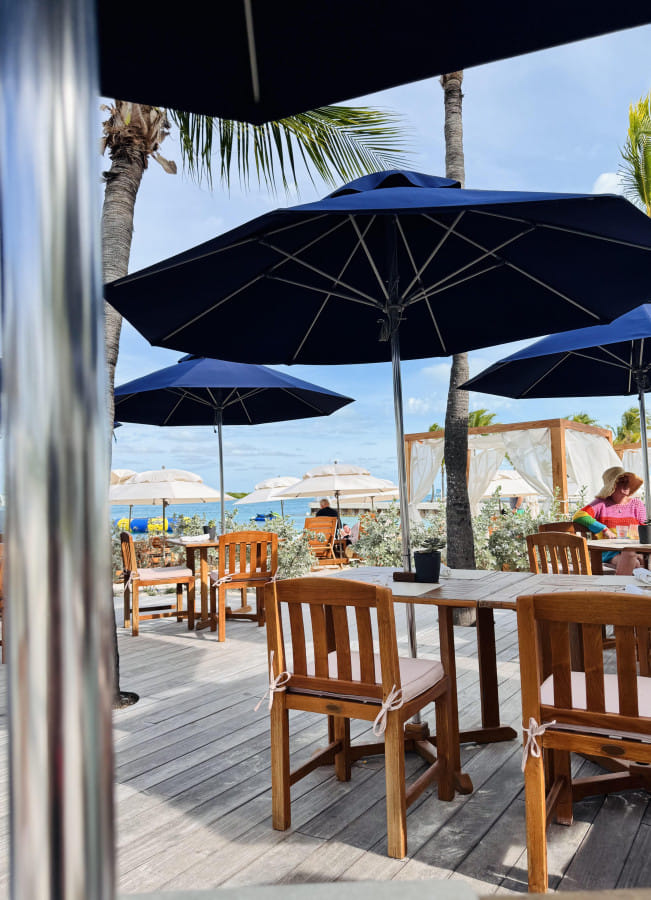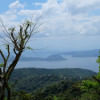Located in the British West Indies, Turks and Caicos Islands' white sand beaches, turquoise waters, and year-round pleasant weather make them an ideal destination for those who love tropical getaways. As the islands boast some of the world's most beautiful beaches, they attract the rich and famous, including Hollywood A-listers. Stunning waterfront villas, many with luxurious yachts docked outside, are a common sight.
It was a 3.5-hour flight from Philadelphia to Providenciales, locally known as Provo, the main island. As our plane approached TCI, I looked out the window and could not help but whisper, "Wow!"
The first sight of the turquoise waters captivated my heart; I could not stop gazing at the pristine beauty of the Caribbean waters. It was our winter getaway to a tropical destination and our first time staying at an all-inclusive resort. We booked a one-bedroom ocean-front suite for four nights at the Blue Haven. And I must say that I felt pampered every day during our five-day stay.
From enjoying a three-course fancy dinner every evening to lunching inside a cabana on the beach, from sitting around a fire pit at night to sipping green smoothie or virgin piña colada in the afternoon, we had a truly relaxing time. Every nook and corner of the resort was well taken care of and every staff member was warm and kind.
Blue Haven has a sister resort, Alexandra, located just 15 minutes away. Guests of one resort have access to the restaurants and beaches of the other resort. A free shuttle transports guests between the two resorts from morning until night.
For me, the highlight of the holiday was kayaking after 19 years. Although a bit shaky in the beginning I got the hang of it pretty quickly. We kayaked for two hours and spotted conches, jellyfish, turtles, a stingray, and a baby shark in their natural habitats.

The people of TCI
The Turks and Caicos Islands are a British Overseas Territory, where the locals are descendants of slaves brought here from Africa by European settlers; 87 per cent of the islanders are ethnically African. Although a British Overseas Territory, the official currency of TCI is the US dollar.
There is a large immigrant population, too, who come from island countries and territories like Jamaica, Haiti, Dominican Republic, Puerto Rico, and Saint Lucia. Everyone, except for one woman, I talked to was a migrant worker. This stirred my curiosity and I spoke at length to these migrant workers to find out more about them.
I learned from these workers that the minimum wage in TCI is only USD 8 per hour. It is to be noted that living or holidaying in Turks and Caicos Islands is expensive; these are islands and almost everything for consumption needs to be imported.
Every time I thought about the money we had to spend on our five-day vacation in TCI and compared it with the wages the resort employees earned, it dampened my spirits. I thought that the very people who looked after us and made our vacation enjoyable were not paid as much as they deserved. And this was also true for other hospitality workers on the islands.
I talked to waiters, waitresses, housekeepers, kayak guides, and spa estheticians. And the more I talked, the more I realised that behind all the glitter and luxury, there were sighs and tears of migrant workers, their pain of being away from family for work, and dissatisfaction with low wages.
During a conversation about life and living with a young man, a migrant worker from the island country Saint Lucia said, "We do all the hard work, but they have all the fun." His face was tinged with sadness.
Overt slavery may not be present in TCI but modern-day slavery does exist in these islands. People from island countries like Jamaica, Haiti, Dominican Republic, Saint Lucia, etc. migrate to rich Caribbean islands like TCI in search of work because their own countries are plagued with high poverty and unemployment rates. However, after they arrive to work in places like TCI, they face labour exploitation, especially in the construction and hospitality industries.
It may be noted that tourism is the main source of revenue for TCI and therefore, hospitality is their largest industry. These men and women are not only paid low wages but also made to work overtime. They often live and work in poor conditions and are threatened to be deported, if they ask for increased wages and benefits.
"I live in a tiny bedroom with a bathroom and a small area to cook. It costs me USD 900," said a resort housekeeper, who migrated to TCI from Puerto Rico. In her broken English, she said, "Life is hard here but I am happy to have a job because I can send money to my family in Puerto Rico."

The more I talked to the migrant workers of TCI, the more I was reminded of the plight of our own Bangladeshis living in the UAE, Qatar, Saudi Arabia, Singapore, and Malaysia. Migrant workers are exploited everywhere and the struggles of a Bangladeshi in the Middle East are not very different from a Puerto Rican migrant worker in Turks and Caicos Islands.
On Christmas Eve, I was having a conversation with a young Haitian waitress about Christmas festivities. Asked how she was going to celebrate Christmas in 2024, she said, "I do not celebrate Christmas. I have to work long hours on Christmas day and by the time I reach home, I am too tired for anything. It's the same every year."
The Turks and Caicos Islands are a vacationer's paradise. The pristine beauty of the white, powdery sand, turquoise waters, clear blue skies, and tall coconut trees will make you want to go back again and again. However, my one-on-one conversations with the migrant workers I met unveiled a picture I was not ready to see.
Behind all the glamour and shimmer of luxury resorts and their guests (mostly white men and women), there is a grim reality that remains undiscussed and out of sight, that is, the exploitation of black migrant workers.









Comments